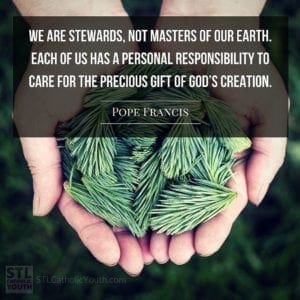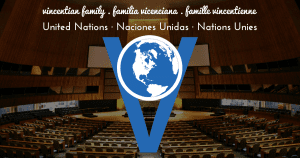
Photo Courtesy of the UN’s Environment Programme (UNEP)
By Margaret O’Dwyer, DC, with information from UN Environment Programme (UNEP)
You may wonder how the work of the United Nations intersects with faith-based organizations (FBOs). Yes, non-governmental organizations (NGOs) engage in considerable advocacy at the UN. But how do UN agencies collaborate with FBOs? A good example of partnership between the two groups is a new effort entitled, “Faith for Earth Initiative.”
Following a series of initiatives and conventions organized in partnership with faith-based organizations, the UN’s Environment Programme (UNEP) launched the Faith for Earth Initiative in November 2017. The Mission of Faith for Earth Initiative is, “To encourage, empower and engage with faith-based organizations as partners, at all levels, toward achieving the Sustainable Development Goals and fulfilling the 2030 Agenda.” It’s vision is a world in which everything is in balance.
UNEP’s work involves 26 Sustainable Development Goal indicators (measurements of success). Through Faith for Earth, UNEP is linking with 400 organizations, building on ethics and faith, values which enhance both people and planet. The idea is that by integrating economic, social and environmental issues, coupled with ethics, beliefs and individual responsibility, the UN is seeking maximum impact.
Faith for Earth Initiative features values which form the acronym, CREATION:
C: Communication– Effective communication at all levels between all stakeholders.
R: Respect– All spiritual and religious beliefs are respected.
E: Empower – Empower and engage all stakeholders.
A: Act – Act in coherence with individual reflection and communal beliefs.
T: Transform – Transform people’s behavior for a more responsible lifestyle inspired by their own faiths.
I: Inspire–Inspire innovative approaches to achieve the 2030 Agenda.
O: Organize – Organize knowledge and other resources related to faiths and sustainable development.
N: Network – Build a strong network between the UN and faith-based organizations.
The United Nations recognizes that the Sustainable Development Goals cannot be achieved alone. It is continually looking for creative partnerships in reaching the Goals by 2030. Faith-based groups are a component of the solutions to SDG challenges.
“I personally believe that leadership empowerment and partnership with spiritual leaders is important,” says Iyad Abumoghli, Lead Principal Advisor on Engaging with Faith-Based Organizations at UN Environment. “The words of faith leaders often get to the hearts and minds faster than any other word, because they are considered to be the words of sacred scripts and represent what God has asked us to do.”

Photo Courtesy of St. Louis Catholic Youth.com
Faith leaders play a major role in influencing the behaviour of their followers and lead them to sustainably consume natural resources, according to Abumoghli. If you think about it, if you are asked by a local political leader or a faith leader to clean up rubbish in a section of your town, to which one are you more likely to listen? According to the Abumoghli, because 80 percent of the world’s population associates itself with a faith, people are more likely to listen to an environmental message from their faith leaders.
When spiritual influencers are themselves inspired by holy texts, the message can translate from the divine to the everyday, UNEP notes. Take care of nature. Recycle. Plant a tree. Conserve water. Invest in environmentally coherent funds and companies that match your values.
“When we talk about greening, we are not just supporting environmental projects, but also how we do charity work and provide for the eradication of poverty – while at the same time sustainably thinking of these actions and resources. The integrated approach is part and parcel of everything we do,” says Abumoghli.
Faith for Earth has three goals:
- To inspire and empower faith organizations and their leaders to actively promote the relationship between environment and faith.
- To work with faith organizations on their investments (such as bonds), banking and assets to finance sustainable development. They are the third largest group of global investors in the world and “greening them” is literally God’s work, UNEP says.
- The third goal is to provide faith leaders with knowledge, networking opportunities and scientific evidence to help them connect issues of faith and the environment.
For more information about UN Environment’s Faith for Earth Initiative, please contact Iyad Abumoghli: iyad.abumoghli@un.org.






0 Comments